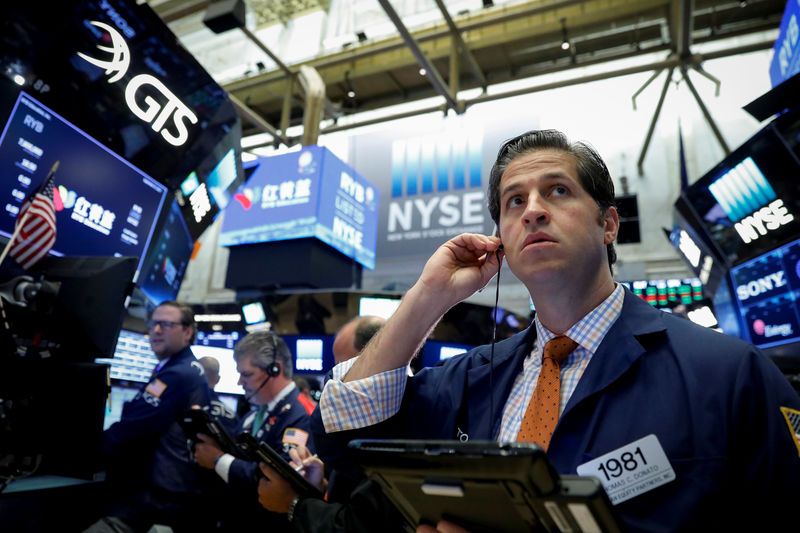By Sinead Carew
NEW YORK (Reuters) - The U.S. dollar fell and was on course for its worst week in more than a month, while Treasury yields fell after underlying U.S. inflation data offset higher gasoline prices and strong retail sales in the wake of disruptions caused by hurricanes.
Stocks on major world stocks however hit their fourth record in a row, with Wall Street moving higher as some investors bet that the inflation data could curb future Federal Reserve's rate rises.
European shares also rose to their highest level in nearly four months, helped by some well-received corporate earnings updates.
U.S. consumer prices recorded their biggest increase in eight months in September as gasoline prices soared in the wake of hurricane-related production disruptions at oil refineries in the Gulf Coast area, but underlying inflation remained muted.
U.S. retail sales recorded their biggest increase in 2-1/2 years in September likely as reconstruction and clean-up efforts in areas devastated by Hurricanes Harvey and Irma boosted demand for building materials and motor vehicles.
"Its a favorable environment for risk taking. Economic and earnings growth with slow inflation means rates stay low and the dollar trends lower and risk taking is rewarded," said Jack Ablin, chief investment officer at BMO Private Bank in Chicago.
The Dow Jones Industrial Average rose 54.25 points, or 0.24 percent, to 22,895.26, the S&P 500 gained 6.23 points, or 0.24 percent, to 2,557.16 and the Nasdaq Composite added 23.17 points, or 0.35 percent, to 6,614.68.
The pan-European FTSEurofirst 300 index rose 0.29 percent and MSCI's gauge of stocks across the globe gained 0.37 percent.
Earlier in Asia, MSCI's broadest index of Asia-Pacific shares outside Japan hit a roughly 10-year high.
"With a December rate hike almost fully priced in by now, however, investors are starting to focus on the Fed's still cautious forward guidance and hence the limited scope for a further increase of the dollar's rate advantage," Credit Agricole (PA:CAGR) strategists said in a note.
The U.S. dollar index fell 0.14 percent, with the euro up 0.16 percent to $1.1848. [L8N1MO3VA]
European Central Bank policymakers broadly agreed to extend asset purchases at a lower volume at their October policy meeting with views converging on a nine-month extension, sources at the central bank told Reuters.
Digital currency Bitcoin was up 5.9 percent $5,767.33 after the previous session's 12.9 percent gain pushed it above $5,000 for the first time.
Benchmark 10-year notes last rose 7/32 in price to yield 2.2998 percent, from 2.323 percent late on Thursday.
The 30-year bond last rose 9/32 in price to yield 2.8388 percent, from 2.853 percent late on Thursday.
Oil prices firmed on Friday as bullish news from strong Chinese oil imports to turmoil in the Middle East put Brent on track for a nearly 3 percent weekly gain.

U.S. crude rose 1.11 percent to $51.16 per barrel and Brent was last at $56.79, up 0.96 percent on the day.